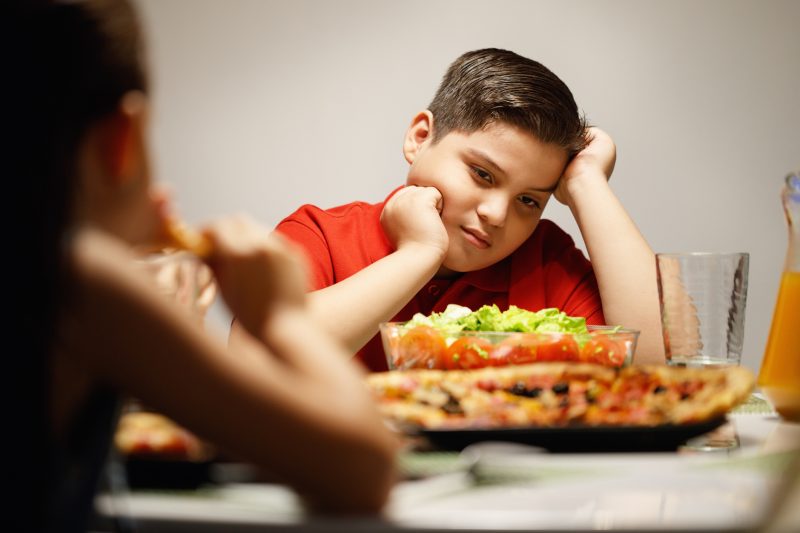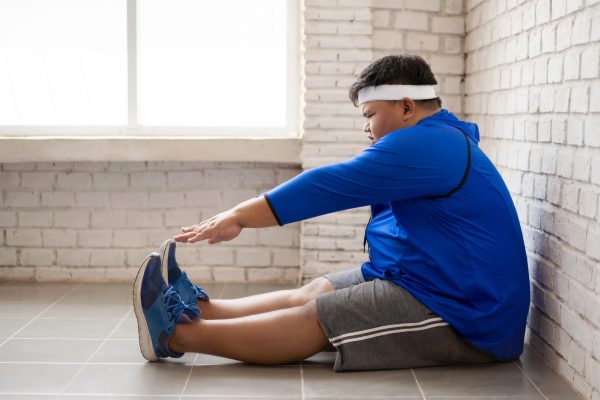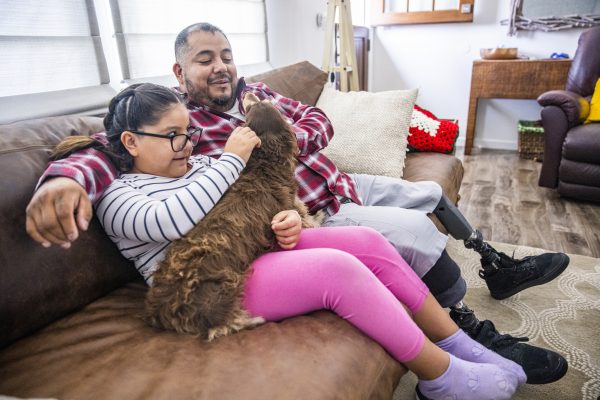 It’s no secret childhood obesity is a growing problem in this country. According to the Centers for Disease Control and Prevention, the prevalence of obesity is nearly 14% among 2 to 5 year olds, 18% among 6 to 11 year olds and more than 20% in 12 to 19 year olds.
It’s no secret childhood obesity is a growing problem in this country. According to the Centers for Disease Control and Prevention, the prevalence of obesity is nearly 14% among 2 to 5 year olds, 18% among 6 to 11 year olds and more than 20% in 12 to 19 year olds.
Childhood obesity numbers continue to rise, putting children and adolescents at risk for poor health as they grow into adulthood. What’s more, many believe it’s a threat to our country. A recent report by the Robert Wood Johnson Foundation states childhood obesity is one of our country’s biggest threats to our nation’s health, economy and future.
Dr. Marnie Walston, a pediatrician and obesity medicine specialist in Akron Children’s Healthy Active Living program, sees a lot of precursors for future chronic medical problems, such as prediabetes, high cholesterol, high blood pressure and sleep apnea, in children with obesity. Some kids may even experience back and joint pain, or orthopedic issues as a result of the extra weight they’re carrying.
“These kids have more doctor visits, take more medications and suffer from health problems that were once considered adult problems,” warned Dr. Walston. “The most concerning long-term effects are cardiovascular disease, diabetes, liver and kidney disease. Plus, adults with obesity have higher rates of cancer and are more susceptible to illness and infections, including COVID-19.”
But what many parents may not realize are the emotional problems that come with being overweight. Kids who have obesity — have a body mass index (BMI) at or above the 95 percentile — experience bullying and stigmatizing at school and in some cases, at home. They also suffer from high rates of depression and anxiety.
“It can be hard for them because they may always feel picked on or singled out,” said Dr. Walston. “If the child is the only one in the family with a weight problem, he may feel isolated and blame himself.”
So what can we do as parents to help put an end to this widening problem? Dr. Walston discusses what parents can do to support an overweight child and help her adapt healthy habits that will last a lifetime.

The best strategy to improve a child’s health is to shift the focus to healthy behaviors, rather than weight loss.
How to physically support an overweight child
“The best strategy to improving a child’s health is to shift the focus to healthy behaviors, rather than weight loss,” said Dr. Walston. “Healthy eating, physical activity, proper rest and less screen time are key to improving a child’s health. If you do those well, it will positively affect your child’s weight and BMI.”
Kids can’t always control every pound they gain or lose. But, they can control their behaviors. For example, a goal to eat more fruits and vegetables at every meal, or to be physically active each day is more easily achieved — and within their control — than a goal simply to lose 10 pounds.
The focus should be on what you can control inside your home, so make sure your home environment sets your child up for success. You can protect your home by eliminating junk food and stocking the pantry with healthy options.
In addition, providing structured mealtimes and creating a daily routine centered around healthy behaviors, even if it’s flexible, can help kids achieve success.
“Daily structure is important now more than ever because many kids are not attending school regularly due to the pandemic,” said Dr. Walston. “When kids don’t have to get up at the same time every day, and meals and ‘recess’ aren’t scheduled like they are at school, it’s easy to slip into unhealthy habits.”
One of the most important ways you can support your children is to model the healthy behaviors you want to see in them. Eat meals with your child and include fruits and veggies on your plate, too. Go on hikes or take the dog for a walk with your child. It’s more fun when you’re adapting healthy behaviors together and it’s easier to motivate each other when the whole family’s involved.
“If kids see that you value good sleeping habits and limit your screen time, they will follow suit,” said Dr. Walston. “We talk a lot about limiting screen time for kids, but adults aren’t always doing that, so it sends a mixed message.”

Is your child being bullied? Start the conversation to find out what’s happening at school and on the playground so you can help and support her.
How to emotionally support an overweight child
Emotional support for overweight children is just as crucial as physical support. Many overweight children are suffering from mental health problems that parents may not even be aware of.
One way you can emotionally support your child is to provide daily praise and encouragement for things that she’s doing well. Kids respond better to praise and positive reinforcement, so be sure to ‘catch’ them doing healthy behaviors to encourage them to keep up the good work.
In addition, ask your child questions about what’s going on at school or on the playground. Is your child being bullied? Is a teacher or other trusted adult unintentionally singling your child out?
By having the conversation, you can find out whether it’s happening to your child and if she’s struggling with it. You can’t help your child if you don’t know what’s happing on the playground and in her social circles.
Lastly, it’s important to make sure your child is being screened for mental health illness by her pediatrician. They are trained to identify signs of depression, stress and anxiety and can direct you on where to seek help.
When to seek help for an overweight child
If your child is struggling to overcome a weight problem, address it with her pediatrician first. Your doctor knows your child best and can consider your child’s history of growth and development, family history and where your child falls on the growth charts. Her pediatrician can offer you and your child guidance to help get her on a healthy track.
If your child’s weight is in the unhealthy range and she hasn’t been successful with these initial steps, or if your child is struggling with a medical problem as a result of the extra weight, Akron Children’s Healthy Active Living program may be able to help.
“The most important thing parents can do is to focus on healthy habits for the entire family,” said Dr. Walston. “The goal is to improve your child’s overall health for the long run, not necessarily to just lose weight.”
For more information on Akron Children’s Healthy Active Living program, call 330-543-5673.










